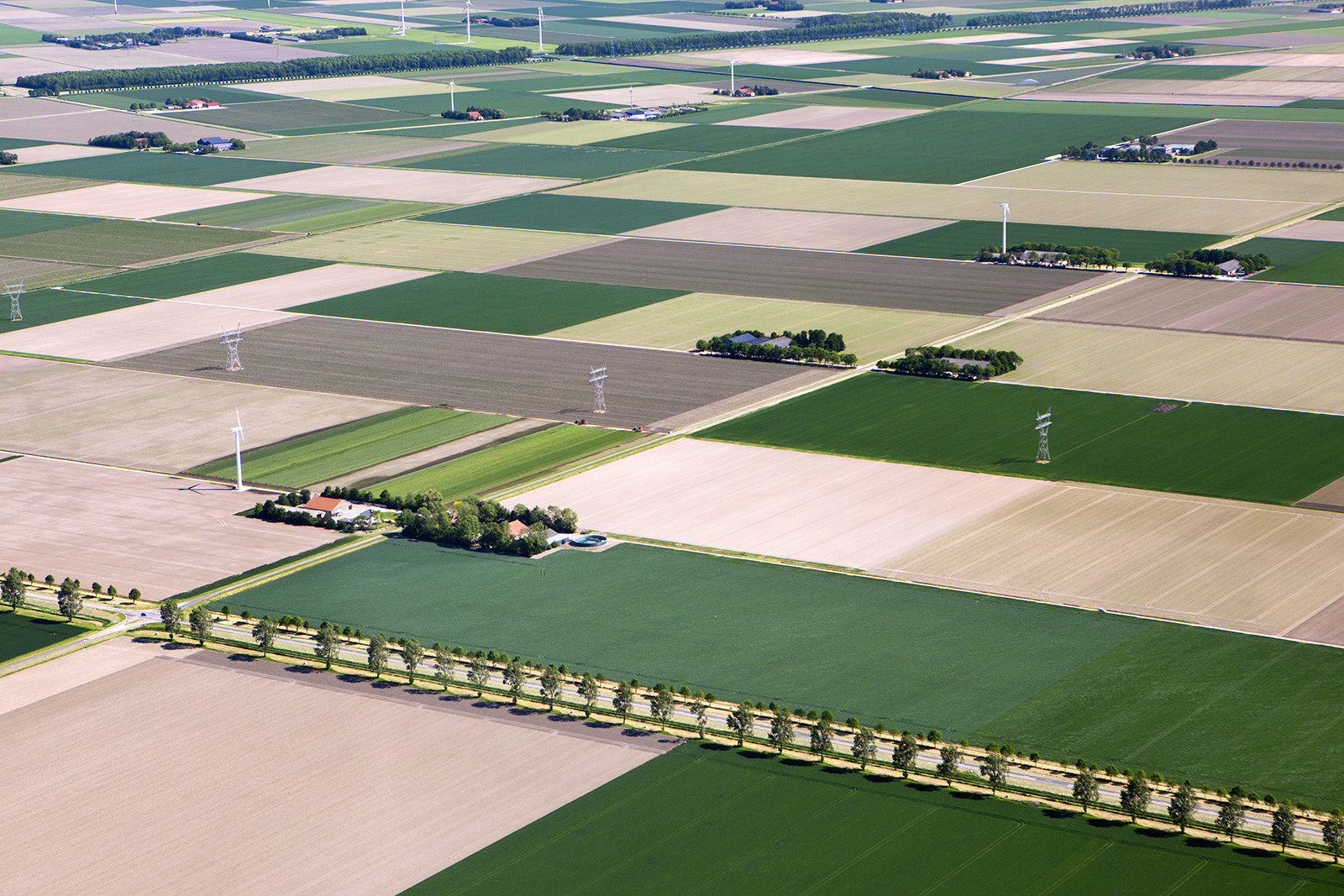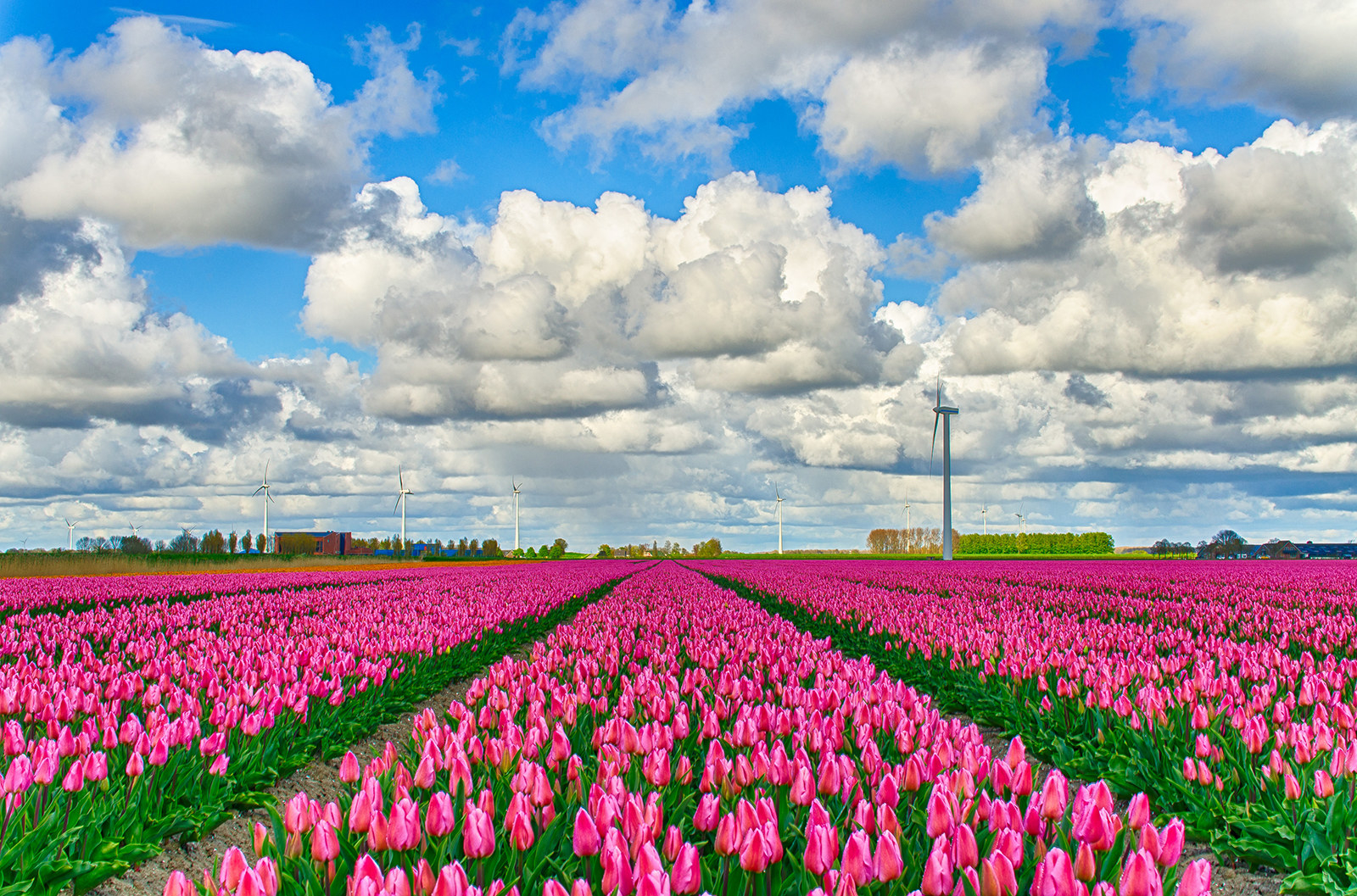
By the time the villagers knew Facebook was coming to town, it was already too late. Three weeks later their local councilors in the idyllic Dutch hamlet of Zeewolde voted 11–8 to rezone a swath of fertile farming land half the size of Central Park and hand it to Facebook to build its “hyperscale” data center — the largest in Holland.
The local councilors, including those who voted in favor of the data center, engaged with the company for almost two years prior to the vote — but without knowing that “Tulip,” the mysterious entity they’d been negotiating with, was Facebook. In fact, the councilors were among the last to know, finding out only after Facebook issued a press release revealing Tulip’s true identity ahead of the vote.
Facebook’s demand for secrecy around its data center in the Netherlands is the latest example of Big Tech’s aggressive but covert strategy to squeeze concessions from local governments. The veil of secrecy minimizes public scrutiny and backlash, often until it is too late.
“It is very strange. Everything is normally very transparent — but with data centers, it is like a big black mystic box,” said Lars Ruiter, a former municipal councilor from Hollands Kroon, who told BuzzFeed News that his village found itself in a nearly identical situation in 2017 with a secret Microsoft data center project.
“It is very strange. Everything is normally very transparent — but with data centers, it is like a big black mystic box.”
Since the Zeewolde vote, a firestorm of public criticism has compelled the Dutch national Senate to pass a parliamentary motion asking the government to halt the project pending a national policy on data centers. But such motions are usually not legally binding, and opponents of the data center are leaning on the commitment of the Netherlands’ newly formed government to present such a policy.
Data centers are the cornerstone of cloud computing. They allow you to access your Google drive from any device anywhere in the world, upload photographs to your Instagram account, and stream Netflix. The business is extraordinarily profitable: Last year, Amazon’s cloud service, for example, had earned over $40 billion in revenue as of October. But data centers like the one Facebook proposed suck up enough energy to power a small town, use millions of gallons of water a day to cool their servers, and typically provide few jobs. This has raised questions about their sustainability, their impact on communities around them, and Big Tech’s insistence on building them in secret.
In 2019, officials in Texas approved $10 million in tax breaks for a data center operated by a developer named Sharka LLC — later revealed to be Google. In Iowa, Microsoft has built at least three data centers while shielding its name from the public, according to the Des Moines Register. Facebook was believed to be using a shell company in Utah to push through bills favorable to data centers as far back as 2016.
In the Netherlands, Facebook encountered a national and local bureaucracy eager to attract a major US tech giant but wary of the environmental costs and public resistance. So in late 2019, when Facebook first began exploring the possibility of building in Zeewolde, its identity was known only to a few senior officials in the national government. The mayor of Zeewolde found out a year into negotiations in early 2021, the King’s commissioner of the region a short time later. The people of Zeewolde were the last to know.
Meanwhile, the company embarked on a bare-knuckle offensive to secure the land, despite Dutch bureaucrats noting that the project in Zeewolde violated the National Strategy on Spatial Planning and the Environment and suggesting a different site.
But Facebook was adamant about its chosen location. It even asked the government to designate its data center a project of “national importance,” a Dutch national policy normally intended to expedite land acquisition and project clearances for vital infrastructure like the national electricity grid.
“The designation of a data center of national importance has never been done, so this would be difficult to explain and create a precedent for the establishment of (more) other data centers,” a Dutch bureaucrat tersely noted in an internal memo obtained by De Telegraaf. “It also seems undesirable to us to state that the location in Zeewolde is of national importance.”
“The designation of a data center of national importance has never been done.”
Sandra Beckerman, a member of Dutch Parliament from the Socialist Party, said the laws around projects of national importance were drafted during the 2008 financial crisis and had been misused in the past. “The idea was to speed up projects in order to create jobs,” she said, which meant “far less democratic control by either local, regional governments or the public.” Large companies, she said, had “profited hugely from this law while local communities are deprived of rights they used to have.”
Facebook also pushed the Ministry of Economic Affairs and Climate Policy to lean on the state-owned electricity utility to prioritize the company’s demands for its electricity substation, warning that it would consider establishing the data center in another country if its demands weren’t met. “Tulip offers us little or no time to continue working on this: they are already asking for a clear signal from EZK this or next week,” another memo said, noting that Facebook was actively lobbying the Dutch government to take urgent action. EZK is the Dutch acronym for the Ministry of Economic Affairs and Climate Policy.
The ministry’s bureaucrats worried that prioritizing Facebook’s demands would distort the expansion of the Dutch national grid. But they had little leverage to negotiate. “They have a preferred position because they have a lot of money and they can pay for that,” said Ben Sonneveld, a councilor who voted against the project. “They were treated differently than others who do not have the money and have to wait.”
In the end, an accommodation for the substation was made, but demand to designate the project a data center of national importance was denied.
“They are willing to work with these tech companies because they are always in money troubles.”
Rob Smeets, a former Zeewolde councilor who opposed the project, resigned from his post weeks before the crucial vote, telling the Dutch press he had done so under pressure from his own party after flagging unspecified conflicts of interest in the negotiations. He was replaced by Hank Parisius, a party colleague who voted in the favor of the project. Had Smeets stayed, Facebook’s margin of victory would have been a much narrower 10–9.
Smeets told BuzzFeed News that he stood by his statement to the Dutch press but declined to elaborate on his allegations. Parisius did not respond to a request for comment.
Beckerman, the MP, said years of budgetary cuts had disempowered local governments by making them far too reliant on property taxes. Facebook’s new data center could contribute up to 2 million euros a year in taxes to Zeewolde’s municipal budget, according to the mayor’s office. “Local and regional governments don't have the power to fight large companies,” she told BuzzFeed News. “They are willing to work with these tech companies because they are always in money troubles.”

Facebook’s data center project in Zeewolde and the company’s efforts to hide its involvement from the people who live there are particularly contentious because they touch on two emotive national issues: land and green energy, both of which are in short supply.
The Netherlands is one of Europe’s more densely populated major nations, much of the acreage lies below sea level and is protected from flooding by oceanfront dykes, and also among the most reliant on fossil fuels. But the country is also the landing point for a bundle of transatlantic undersea telecommunication cables and home to one of Europe’s biggest internet exchanges, making it a compelling destination for data centers like Facebook’s.
The Netherlands is also a tax haven. The Tax Justice Network ranks it fourth in the world behind the British Virgin Islands, Cayman Islands, and Bermuda for “global tax abuse,” and eighth for “financial secrecy.” Which is worth noting, because when the first tranche of land for Facebook’s data center in Zeewolde was acquired, the sale was made to a shell company called Polder Networks. Company documents obtained by BuzzFeed News show Polder’s sole shareholder is a company called Liberation Management, which advertises itself as a discreet consultancy with offices in the Netherlands and Luxembourg. Polder and Liberation did not respond to requests for comment, but Facebook spokesperson Kim van Bokhoven told BuzzFeed News, “Polder Networks B.V. is the legal representative of Meta in the Netherlands that builds and manages the data center.”
This combination of corporate secrecy, tax discretion, and telecom connectivity has meant Amsterdam is now home to one of Europe’s biggest concentrations of data centers — but much of the data in the Netherlands serves users around the world.
“Two-thirds of the data center capacity in the Netherlands is used for companies and residents not in the Netherlands,” said René Buck, founder of Buck Consultants International. Last year, a Buck Consultants International study commissioned by the Dutch government suggested that large-scale data centers offer little direct economic benefit to the communities that live around them.
“Two-thirds of the data center capacity in the Netherlands is used for companies and residents not in the Netherlands.”
“We often spread data needs throughout our data center infrastructure — in fact, we currently serve traffic quickly and reliably around the world,” van Bokhoven told BuzzFeed News. “So there is no guarantee that user traffic in the region will be served exclusively by this facility.
Data centers consume large amounts of energy, but with many big tech companies eager to burnish their green credentials, they are increasingly located near sources of renewable energy. Many data centers in the Netherlands are monopolizing scarce green energy supplies for their own use to the chagrin of local communities.
In 2017, for instance, Microsoft announced its massive data center in the Netherlands was buying up 100% of the electricity produced by a giant wind farm not far from Amsterdam. Microsoft touted this as an example of its commitment to sustainability, a perspective faithfully reproduced in sections of the press. Back in the Netherlands, commentators noted that the wind farm produced enough energy to power 370,000 homes — but all the energy was being sucked up by a single American company.
Beckerman told BuzzFeed News outrage was building among citizens irked to see their tax dollars funneled into renewable energy investments that largely benefited foreign companies. “People can’t pay their energy bill, and 50% of the energy bill is made up of taxes,” she said.
The municipality of Zeewolde estimates Facebook’s data center would use twice the energy used by the whole town. Ben Sonneveld, a Zeewolde councilor who voted against the project, said the company had not been upfront about how this green energy would be sourced.
The wind farm produced enough energy to power 370,000 homes — but all the energy was being sucked up by a single American company.
Most of Zeewolde’s energy comes from about 400 windmills on the outskirts of the town. Project opponents like Sonneveld fear that, much like Microsoft’s data center in neighboring Holland Kroons, Facebook's arrival in Zeewolde would mean more common lands lost to windmills. While the company has made no specific references to investing in wind farms in Zeewolde, the secrecy around the project thus far has meant residents fear they will only find out about any potential wind farms when it is too late.
“I calculate that we need another 140 windmills,” Sonneveld said. “So where do we put them? Nobody knows.”
Zeewolde Mayor Gerrit Jan Gorter, a strong proponent of the project, told BuzzFeed News that Facebook had not received any financial incentives or tax breaks to invest in Zeewolde and that a data center in the town did not violate planning guidelines. He argued that the data center will bring jobs and investment to the region. The town council is looking to build more windmills in Zeewolde, he said, but the windmill project predates and would not be directly connected to the data center project. Gorter said Facebook’s data center intends to use “100% green power” by purchasing green certificates (known as "guarantees of origin," or GVO) across the European electricity network. A GVO is essentially like a carbon credit, but for renewable energy.
Gorter said the secrecy around Facebook’s data center was standard operating procedure when attracting new investment to the region to ensure that the local government did not discriminate between companies.
“The actual name of the company should not make a difference as they only have to decide whether a company meets the requirements for establishment in Zeewolde,” said Gorter, referring to the recently concluded council vote on the project, “and that does not depend on the name of the company.”
And Facebook argued that despite the secrecy around the project, it only has the best of intentions. "We understand and respect that any major project and change can lead to questions and concerns. It is therefore good to emphasize that we do everything we can to be a good neighbor for everyone in the area, such as the farmers and residents of the municipality of Zeewolde,” van Bokhoven told BuzzFeed News.

As late as 1972, the entire province of Flevoland, where Zeewolde is situated, was a shallow brackish marsh. Every acre in Zeewolde, residents said, was painstakingly claimed by damming an inlet of the North Sea — the culmination of a decadeslong process that began in 1924 and ended sometime in 1984.
“It’s a very young village, it’s the youngest village in our country. The land is very fertile. So to give 166 hectares of fertile land to metal boxes is beyond our imagination,” said Susan Schaap, who said she moved here 23 years ago. “Zeewolde is a beautiful village. There’s a lot of woods, there’s a beach, there’s sun, there’s a lot of sand, there’s a lot to do for children.”
Schaap is the administrator of Stichting DataTruc Zeewolde, a Facebook group of residents opposed to the data center in their village.
“To give 166 hectares of fertile land to metal boxes is beyond our imagination.”
“It’s not like it’s a data center where they store all this data for maybe payments, hospital applications, or, you know, medical things,” Schaap said. “They have all this information stored from people, which they sell to advertisers.”
For now, the public backlash against the deal has slowed the sale of the land. A spokesperson for the Netherlands’ Central Government Real Estate Agency said the land would be transferred to Facebook only if a set of mandatory sustainability requirements were met.
Meanwhile, the Ministry of Economic Affairs and Climate Policy is slowly walking back its public support for the data center despite doing everything in its power to help Facebook. When BuzzFeed News asked the ministry for its formal position on Facebook’s data center, its spokesperson deferred to Zeewolde’s municipality.
Beckerman, the opposition MP, said the various accommodations offered to Facebook stood in stark contrast to the experiences of the ordinary Dutch citizen when interacting with their local government.
“I guess people are really fed up with the government always acting in the best interest of these large companies,” Beckerman said, adding this was “another example of a government putting too much energy and time and money in these kinds of companies.” ●
